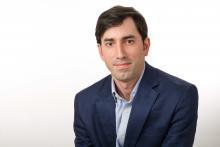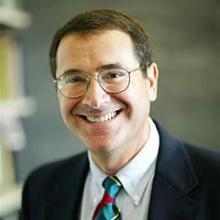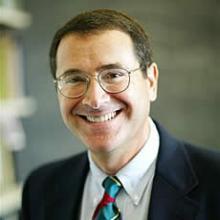The Experimental Shakespeare
Early critics praised Shakespeare for his realism: Alexander Pope called him "not so much an Imitator, as an Instrument of Nature; and 'tis not so just to say he speaks from her, as that she speaks through him." Samuel Johnson called Shakespeare's drama "the mirror of life," and declared that whatever his subject, he "shews plainly, that he has seen with his own eyes." Samuel Taylor Coleridge contended that "great as was the genius of Shakespeare, his judgment was at least equal." All these critical terms - realism, perception, judgment - are those used to praise experimental innovators. And Coleridge considered Shakespeare's experimental life cycle: calling him "no mere child of nature; no mere automaton of genius; no passive vehicle of inspiration," Coleridge observed that Shakespeare "first studied patiently, meditated deeply, understood minutely, till knowledge became habitual and intuitive...at length gave birth to that stupendous power."
More recently, Stephen Greenblatt observed that Shakespeare's achievement was "not sudden, definitive innovation, but the subtle refinement of a particular set of representational techniques." Harold Bloom contended that the uniqueness of Shakespeare's genius was in peopling a world with "men, women, and children preternaturally natural. Cervantes rivals him with two giant personalities, Don Quixote and Sancho Panza, but Shakespeare has hundreds." Bloom noted that Barnardine in Measure for Measure speaks only five times, for a total of seven sentences, "and yet we know him completely." Virginia Woolf agreed: she studied Shakespeare plays to understand his stylistic concision, marveling at his ability to reveal "a whole character packed in a little phrase." Bloom confided that if he could question any dead author, it would be Shakespeare, and his first question would be: "did it comfort you to have fashioned women and men more real than living men and women?"
T.S. Eliot considered Shakespeare the greatest of poets and dramatists, and studied his work from an early age (when Eliot was 16, his mother wrote to the headmaster of Milton Academy that "he has read practically all of Shakespeare, whom he admires, and retains much in memory"). Eliot pondered the nature of Shakespeare's artistic development throughout his career, as this became the focal point for his consideration of the relationship between age and creativity. Eliot was in awe of the "slow, continuous development of mastery of his craft of verse" that never ceased: "To the last Shakespeare is inexhaustible. Whatever he did was new." This produced a unity in his work, "so that we may say confidently that the full meaning of any one of his plays is not in itself alone, but in that play in the order in which it was written, in its relation to all of Shakespeare's other plays, earlier and later."
Eliot contrasted Shakespeare's creative life cycle with that of a transgressive conceptual genius who was his exact contemporary:
We can also observe... that the plays of Christopher Marlowe exhibit a greater maturity of mind and of style, than the plays which Shakespeare wrote at the same age: it is interesting to speculate whether, if Marlowe had lived as long as Shakespeare, his development would have continued at the same pace. I doubt it: for we observe some minds maturing earlier than others, and we observe that those which mature very early do not always develop very far.
Eliot remarked that Shakespeare's greatness not only grew as the writer aged, but that his development became more apparent to the reader as he himself aged: "No reader of Shakespeare... can fail to recognize, increasingly as he himself grows up, the gradual ripening of Shakespeare's mind." In his last public lecture, at 73, Eliot reflected that "So great is Shakespeare... that a lifetime is hardly enough for growing up to appreciate him," and in one of his last essays he declared that "of Shakespeare, the development of one's opinions may be the measure of one's development in wisdom." The extended growth of the experimental Shakespeare was an uncomfortable subject for the conceptual Eliot, whose own life cycle of creativity was so different. But Eliot was too perceptive a reader not to recognize the growth of Shakespeare's art over the course of his life, and too principled a critic not to consider how his creativity grew with age.
Hamlet famously advised the players to hold the mirror up to nature. Shakespeare's own ability to do this improved as he grew older, and ultimately made him the greatest of artistic experimental innovators. Thus when James Joyce was asked which one book he would want to have on a desert island, he replied "I would like to answer Dante, but I would have to take the Englishman, because he is richer."

















